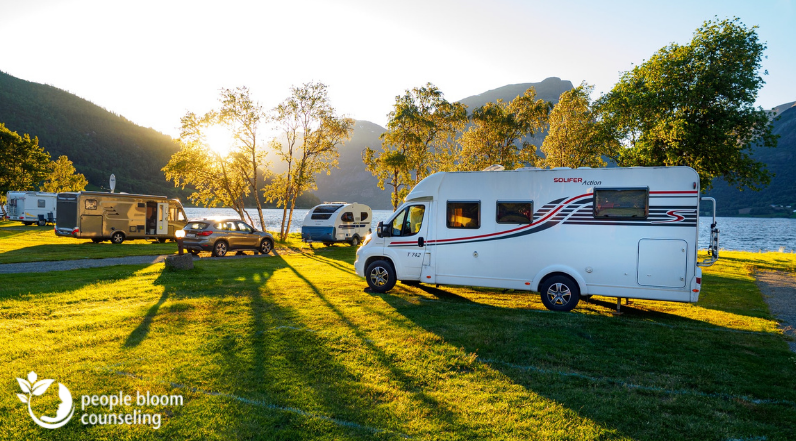Photo by Carlos de Toro @carlosdetoro on Unsplash
If you’ve been on a Zoom call lately, you’ve probably noticed that pronouns are listed under many of your colleague’s names, and that you can edit your pronoun with a single click. What a concept! Technology has enabled us to express this important aspect of ourselves to anyone we e-meet so they can know our pronouns at first glance. Wherever you lie on the gender spectrum, you can’t miss the changing landscape of gender diversity awareness.
I identify as queer, and my pronouns are she/her. While I don’t use gender-neutral pronouns myself, I appreciate organizations and workplaces that place importance on respecting people’s pronouns in conversation. I want to share my journey of love/hate relationship with the they/them pronouns, and how I eventually came around to the love side (the TL/DR version is, just respect people’s pronouns, dammit!)
When pronouns first entered the collective conversation, the English language purist in me struggled with the grammatical inconsistency of the they/them pronouns. I insisted that grammatically, it does not follow to refer to a singular person as if they are a collective “them” in a sentence. Perhaps partly in response to this very concern, the LGBTQ community came up with other pronoun options, called neopronouns, such as “Ze/hir,” or “xe/xyr”used to indicate non-binary gender.
For a comprehensive list of gender neutral pronouns and short but sweet history lesson of the evolution of the inclusive “one” instead of “he/she,” pronouns, see this great resource from the University of Wisconsin.
Personally, I’m in the camp that would prefer to add new words to the English language than to butcher grammatical rules. When I learned about options other than “they and “them” for gender neutral pronouns, I was 100% on board! I wanted to shout from the rooftops that everyone with gender non-comforming preferences could choose a neopronoun, and we could finally be rid of this pesky misused “they.” But change isn’t quick to come, and people haven’t picked up these other pronoun options like I hoped. Neopronouns are used by some, but they’re not very common. They/Them have won out as the most commonly used gender neutral pronouns. A recent survey showed that 25% of LGBTQ youth in the US use gender neutral pronouns. Just 4% use neopronouns. The English nut in me refused to accept it for a long time - I clung on to a wish for the way it could be, if only everyone just adapted and chose anything but “they/them!” Be a ze! Be a xyr! A Mx or a per! Ok this is turning into a Dr. Seuss rhyme.
Grammar be damned
Our constantly evolving world has made me take a hard look at myself. In the last few years I’ve been consciously working on inclusivity and questioning my resistance to the they/them pronoun. The first thing I questioned was the obsession with keeping the English language “pure:” who says things have to be the way they always were? Language evolves - English is the way it is because of cultural shifts and geographic migrations over centuries. Even “perfect” grammar as it was taught to me would probably be appalling to someone from the 1700s. This Here is a great resource explaining all the scenarios where “they/them” would be appropriate to use. While change can be hard to accept, ultimately changes to language are natural, and show that we are progressing as humans. Modifications to language are reflections of changing attitudes, and in the case of expanding LGBTQ rights, this is a welcome cultural change.
Respecting my fellow humans
I also started being more mindful of people’s wishes - recognizing their human right to have non-conforming gender expression, gender identity, and pronouns. All this meant making a deliberate effort to think in terms of pronouns. I thought about the people I know with gender neutral pronouns, and I made a conscious effort to use them, both in my thoughts and in conversation. If you’re not used to using non-binary pronouns, try it out:
“Xander wasn’t in English class today, have you seen them?”
“Oh, they had a dentist appointment. They should be back by third period. You don’t have to worry about them, they’re fine!”
Practice practice practice
If you know someone’s pronoun preferences, think of them in the terms they request, and practice using their pronouns when referencing them. And remember they have the right to change their pronouns over time, as they learn about themselves. Practicing using people’s pronouns will hopefully make you feel confident that you’ll get it right when speaking to your friends with neutral pronouns directly.
Simplicity
So, xe/xyr didn’t take off. That’s ok, maybe someday… (but for those who do use neopronouns, more power to you!) For those that use they/them, I’ll concede that this has its pros. Using they/them simplifies the pronoun question for anyone who is new to the concept, or may find the other pronouns options confusing. They/them is a palatable approach that may bring pronoun preference awareness to the mainstream consciousness. We already use the words “they” and “them,” so these words can easily be added to the lexicon in another context, without having to learn new words. For many, there would be less resistance to this pronoun than to brand new words.
Giving it meaning
I learned to appreciate they/them on a philosophical level as well: When we pluralize a pronoun that’s referring to a single person, I see it as a way of including all aspects that make a person who they are, including any and all gender expressions with which they identify. Using the term them includes the many ways our identities intersect to make us our unique selves.
Thanks for letting me take you on my journey of acceptance of something I shouldn’t have been so resistant to in the first place. I know I have completely fixated on they/them pronouns here, but it’s mostly out of necessity because they’re the most prevalent gender neutral pronouns we see these days. All that to say, I don’t mean to dismiss other pronouns. All pronouns are welcome! I hope that with time, people feel more comfortable stating their preference for the pronouns that make them feel like their authentic selves.
If you’re not sure what someone’s pronouns are, just ask! And it’s also ok to screw it up at first - most people in the LGBTQ community appreciate the effort to get it right. And if you do mess up, the best approach is to correct yourself and move on, without apologizing.
I wanted to end on this blog with a delightful Schoolhouse Rock throwback about pronouns - who would have thought back in the day when we were watching our grammar lesson cartoons that these conversations would be front and center in our collective consciousness 30 years later? Enjoy!
If you need support in understanding your own or a loved one’s gender identity, a trained therapist can help. Reach out to one of our therapists today.
Karen Lenz is the Office Whiz and Insurance Guru at People Bloom Counseling. She writes blog posts as a human navigating this world, a client sitting across from a therapist, much like you. She enjoys cooking, hiking, playing with her dogs, and dabbling in yoga.





